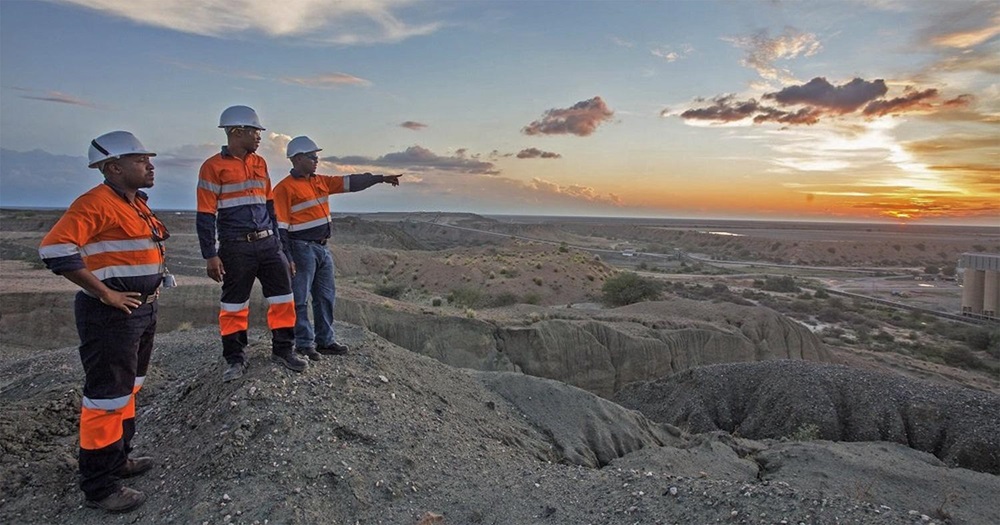
The diamond mining industry has played a pivotal role in transforming economies and societies in countries such as Botswana, where diamonds are a significant natural resource. This essay explores how diamond mining has contributed to Botswana’s development, focusing on economic growth, infrastructure development, social welfare, and challenges associated with the industry.
Economic Growth and Revenue Generation
Botswana’s diamond mining industry has been instrumental in driving economic growth and development. Since the discovery of diamonds in the country in the 1960s, Botswana has emerged as one of the world’s leading diamond producers, particularly known for producing high-quality gemstones. The revenue generated from diamond mining has formed a substantial portion of the country’s GDP, accounting for around 80% of export earnings and one-third of government revenue.
The economic benefits derived from diamond mining have enabled Botswana to invest in critical infrastructure projects such as roads, schools, hospitals, and utilities. This infrastructure development has improved the quality of life for many citizens, particularly in rural areas where access to essential services was previously limited.
Employment Opportunities and Skills Development
Diamond mining has been a significant source of employment in Botswana, directly employing thousands of people in mining operations, as well as in related industries such as logistics, services, and manufacturing. The industry has provided job opportunities for both skilled and unskilled workers, contributing to poverty alleviation and socio-economic empowerment.
Moreover, the diamond mining sector has invested in skills development and training programs to enhance the capabilities of local workers. This investment in human capital has not only benefited the mining industry but has also contributed to broader economic diversification and sustainable development initiatives in Botswana
Social Welfare and Community Development
Beyond economic contributions, diamond mining has facilitated social welfare programs and community development initiatives in Botswana. Mining companies operating in the country have implemented corporate social responsibility (CSR) projects aimed at improving education, healthcare, and infrastructure in local communities.
For example, Debswana, a joint venture between De Beers and the Botswana government, has undertaken various CSR projects focusing on education and healthcare. These initiatives have included building schools, providing scholarships for students, constructing healthcare facilities, and supporting local entrepreneurship.
Challenges and Environmental Considerations
Despite its significant benefits, the diamond mining industry in Botswana also faces challenges and considerations. Environmental impact is a major concern, as mining operations can disrupt ecosystems, affect water quality, and lead to habitat degradation. Responsible mining practices and environmental regulations are essential to mitigate these impacts and ensure sustainable resource management.
Furthermore, the reliance on diamond revenue exposes Botswana’s economy to fluctuations in global diamond prices and demand. Economic diversification efforts are crucial to reduce dependence on diamonds and build resilience against external economic shocks.
Governance and Transparency
Effective governance and transparent management of diamond resources are critical to maximizing the benefits of diamond mining for Botswana. The Botswana government has implemented policies and regulatory frameworks to ensure that diamond revenues are managed efficiently and equitably distributed.
The partnership between the government and private sector entities such as Debswana has been essential in promoting transparency and accountability in the diamond mining sector. Revenue generated from diamond sales is reinvested into social and economic development programs, contributing to poverty reduction and sustainable growth.
Conclusion
In conclusion, the diamond mining industry has played a transformative role in Botswana’s development journey, contributing significantly to economic growth, infrastructure development, job creation, and social welfare. The industry’s impact extends beyond economic benefits to include skills development, community empowerment, and environmental stewardship.
However, challenges such as environmental impact, economic diversification, and governance remain critical considerations for Botswana’s diamond mining industry. Continued efforts in sustainable resource management, responsible mining practices, and diversification strategies will be essential to ensure that diamond mining continues to benefit Botswana’s economy and society for generations to come.






